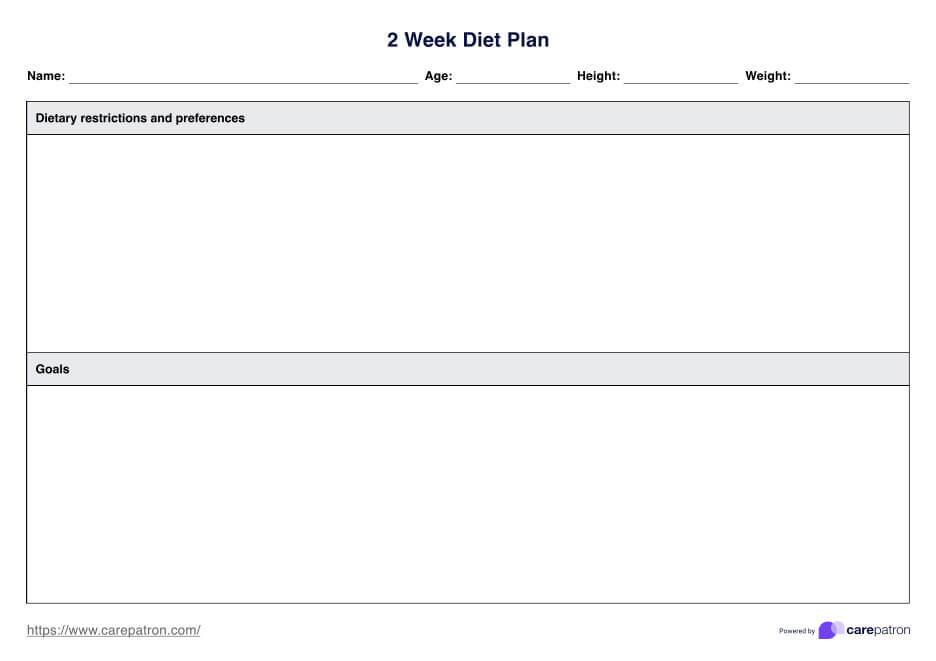Focus on whole, nutrient-dense foods like lean proteins, fruits, vegetables, and whole grains. Limit processed foods, sugars, and excessive fats for an effective 2-week weight loss meal plan.

2 Week Diet Plan
Get access to a free 2-Week Meal Plan template. Create structured and effective diet plans for your patients with this PDF.
Use Template
2 Week Diet Plan Template
Commonly asked questions
Losing 20 pounds in 2 weeks is not recommended for sustainable and healthy weight loss. Aim for a gradual approach, combining a balanced diet with regular exercise for safer and lasting results.
While individual results vary, a safe and realistic goal is one to two pounds per week. Extreme diets promising rapid weight loss often lead to water and muscle loss, not sustainable fat loss.
EHR and practice management software
Get started for free
*No credit card required
Free
$0/usd
Unlimited clients
Telehealth
1GB of storage
Client portal text
Automated billing and online payments











